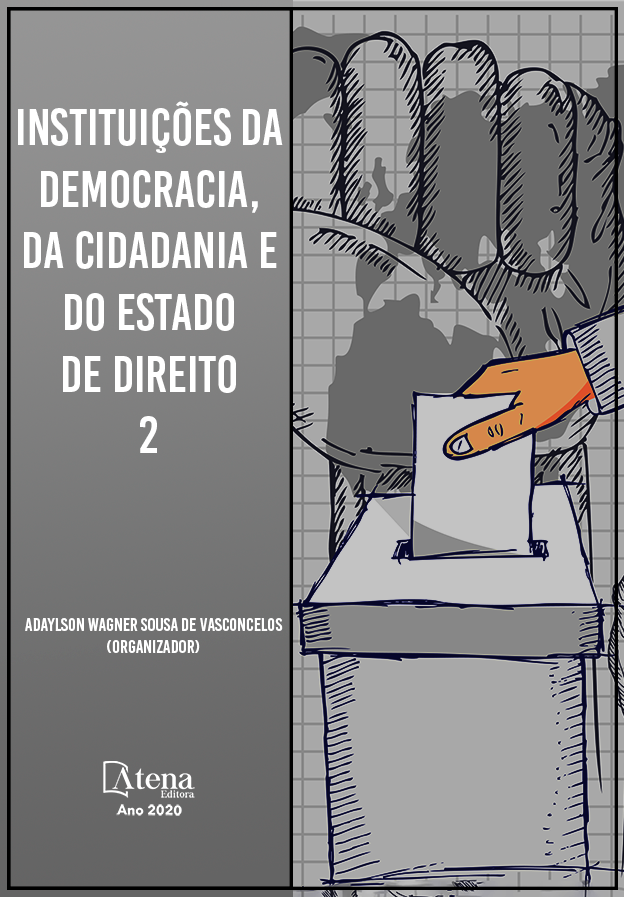
O QUE PROPÕEM E O QUE APROVAM AS DEPUTADAS FEDERAIS BRASILEIRAS DE ACORDO COM SUA FILIAÇÃO IDEOLÓGICO PARTIDÁRIA (1987-2017)
O objetivo desta pesquisa é avaliar em que medida a ideologia partidária das deputadas federais entre 1987 a 2017 está relacionada a maior capacidade de aprovação de proposições legislativas de autoria das mesmas. Os objetivos específicos são: (i) analisar a produção legislativa das Deputadas Federais de acordo com a afiliação ideológico partidária e a temática das proposições; (ii) verificar se ha diferencas no total de projetos aprovados pelas deputadas federais de acordo com a afiliação ideológico e partidária. Diante dos resultados empíricos, pode-se observar prioridades temáticas na produção legislativas das deputadas, sugerindo possíveis relações causais. Essa pesquisa de cunho empírico realizou uma análise descritiva quantitativa da produção legislativa das deputadas em números absolutos e proporcionais, assim como do que foi aprovado por legislaturas. Para isso foram analisadas 4661 proposições de autoria individual e coletiva, entre elas Projetos de Lei (PL), Projeto de Lei Complementar (PLP) e Proposta de emenda à constituição (PEC), produzidas pelas deputadas federais entre 1987 a 2017. Do universo de matérias observadas, o total de proposições aprovadas e baixo, devido ao domínio da agenda pelo Executivo que tem prerrogativas suficientes para garantir-se como principal legislador. Porém, as proposições apresentadas por parlamentares de esquerda foram as mais aprovadas, no entanto as proposições em parceria mostram uma tendência a serem mais atrativas no passar das legislaturas. Dentre os partidos verificamos que as parlamentares de partidos maiores e com bancadas legislativas mais robustas como PT e PMDB foram a que apresentaram maior aprovação de matérias legislativas.
O QUE PROPÕEM E O QUE APROVAM AS DEPUTADAS FEDERAIS BRASILEIRAS DE ACORDO COM SUA FILIAÇÃO IDEOLÓGICO PARTIDÁRIA (1987-2017)
-
DOI: 10.22533/at.ed.44020121113
-
Palavras-chave: Comportamento legislativo; Ideologia partidária; Parlamentares mulheres; Deputadas federais; Representação substantiva.
-
Keywords: Legislative behavior; Party ideology; Women parliamentarians; Federal deputies; Substantive representation.
-
Abstract:
The objective of this research is to evaluate the extent to which the party ideology of federal deputies between 1987 and 2017 is related to the greater capacity to approve legislative proposals that are authored by them. The specific objectives are: (i) to analyze the legislative production of Federal Deputies according to the party's ideological affiliation and the theme of the proposals; (ii) check if there are differences in the total of projects approved by federal deputies according to ideological and partisan affiliation. In view of the empirical results, it is possible to observe thematic priorities in the legislative production of the deputies, suggesting possible causal relations. This empirical research carried out a quantitative descriptive analysis of the legislative production of the deputies in absolute and proportional numbers, as well as of what was approved by legislatures. For this purpose, 4661 proposals of individual and collective authorship were analyzed, including Law Projects (LP), Complementary Law Project (CLP) and Proposed Amendment to the Constitution (PAC), produced by federal deputies between 1987 and 2017. Of the universe of matters observed, the total number of proposals approved and low, due to the dominance of the agenda by the Executive, which has sufficient prerogatives to guarantee itself as the main legislator. However, the proposals presented by left-wing parliamentarians were the most approved proposals, however the proposals in partnership show a tendency to be more attractive over the legislatures. Among the parties, we verified that the parliamentarians of larger parties and with more robust legislative benches such as PT and PMDB were the ones that presented the highest approval of legislative matters.
-
Número de páginas: 15
- Mariana Lorencetti
- Geissa Cristina Franco
- Diogo Tavares de Miranda Ferreira
- Maria Cecilia Eduardo


